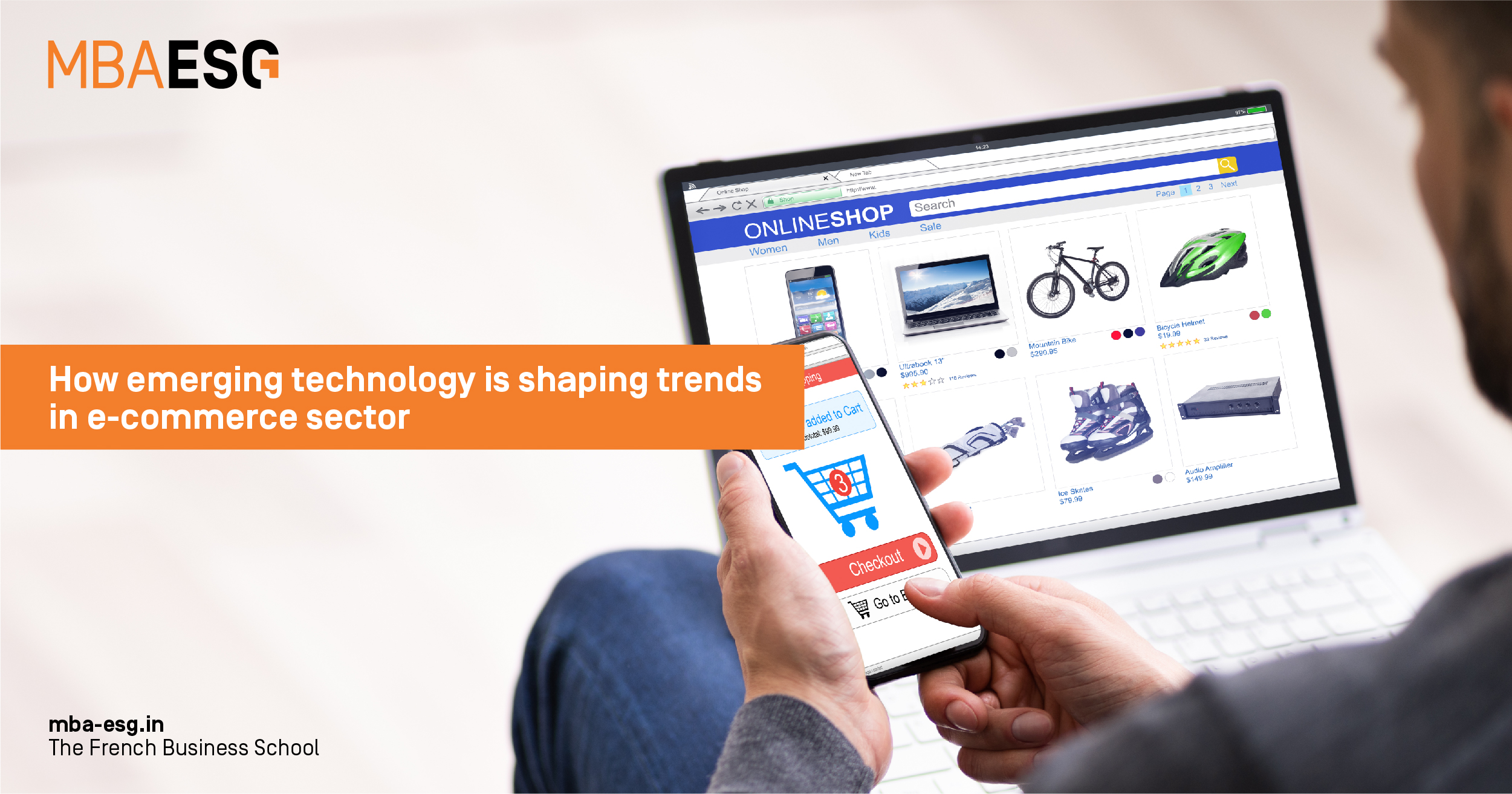When it comes to the e-commerce industry, this one is quick to adapt and adopt to the various technological changes that help them to enhance their customer experience and cut costs leading to an overall improvement in business operations. The emerging technologies have been no different, the adoption of Machine Learning, Artificial Intelligence to virtual and augmented reality, the e-commerce brands are investing heavily in the latest trends of technology to stay ahead of the competition and meet the needs of their customers.
E-commerce brands realize how these technologies can enhance the customer experience, lead to engaging and immersive experiences and help to collect plus analyse data to offer a range of personalized and customizable experiences to its users. This has become a norm in the sector now where improving customer satisfaction has also increased their conversion rates and revenue. Automation processes are already aiding brands to reduce costs with help of robotics and machine learning while improving the speed and accuracy of order fulfilment and delivery.
Also read: India’s winning moments: Women’s world boxing championship 2023
Being one the fastest growing sectors, e-commerce has had many factor shaping the industry, however with the emergence of emerging technologies, here are a few ways new e-commerce trends are shaping:
AI in e-commerce
Artificial Intelligence has been a strong revolutionizing force across the globe and phenomena to not shy from, the e-commerce sector has embraced this in many ways, like:
A. Offering personalized product recommendation:
With the help of data analytics of customer data, AI is able to help brands to reach very specific data points that aid further to provide tailored recommendations to customers.
B. Managing inventory:
Another useful aspect of AI in e-commerce has been to help the brands manage their inventory in real-time, helping to reduce waste and increase profits.
C. Chatbots:
One of the most revolutionary aspects of AI has been the AI-powered chatbots that have aided the e-commerce brands to manage customer queries and complaints to offer a seamless customer experience.
Also read: Rise of AI – Advantages, use cases and risks
Virtual and Augmented Reality in e-commerce
VR/ AR have been transforming the way customers shop online, offering customers a chance to virtually engage with products before purchasing them. Here are few ways brands have embraced AR/VR:
A. Virtual trial rooms/ try on features:
Customers now have the opportunity to see what furniture or clothing they like and see them on themselves, or inside their homes. Offering them an opportunity to try before buying in a virtual setting. Customers can virtually try on jewellery, makeup, glasses and more.
B. Engaging product demonstrations:
VR/AR helps to demonstrate how to use a product, how the product works and offer an immersive shopping experience with interactions and engagement.
Blockchain in e-commerce
Blockchain is known for its ability to offer a direct link to who buys cryptocurrency or NFTs and offer detailed and transparent tracking. It has several others applications in the e-commerce sector as well:
A. Secure transactions:
Blockchain is known to offer secure and transparent transactions that help to reduce the risk of fraud.
B. Managing supply chain:
The technology helps to track products from their origin to the end users.
C. Loyalty programs:
It can also be used to manage loyalty programs, to help ensure that customers receive the rewards.
Also read: Famous couturiers of India behind most celebrated Indian wedding outfits
Internet of Things (IoT) in e-commerce
IoT is the interconnectedness of devices and objects – that allows for data exchange and automation. In the e-commerce sector, IoT is used for various aspects:
A. Smart homes:
IoT helps to create smart homes, where, for example IoT can help to re-order products automatically when they run out.
B. Smart packaging:
When enabled with IoT, the packaging can track the location of products and monitor their condition while they are in transportation.
C. Supply chain optimization:
IoT sensors today can help to monitor inventory levels and track shipments to help them be delivered on time.
Emerging technologies are indeed shaping the present and the future of e-commerce in many new, existing, and engaging ways. From AI-powered personalization to virtual reality showrooms, these technologies are offering customers a wide range of engaging, immersive and interactive experiences. Businesses that embrace these technologies and invest in them are more likely to be successful.
If you are interested in a career in E-commerce, supply chain management or the logistics side of the business, MBA-ESG offers a niche and exclusive course in MBA E-commerce, supply chain and logistics which is the right course for your career path in this sector.

